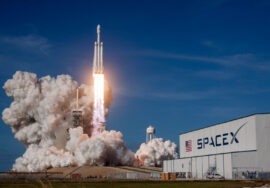

Gas Crisis, sparks global battle for tankers!
Gas Crisis sparks an unusual market offer!
LNG tankers are in high demand, as rates and prices for new LNG tankers surge as Europe looks for alternatives to throttled Russian gas supplies
European countries ramped up their purchases of liquefied natural gas from the U.S., Qatar this year as Russia cut supplies to the continent.
Tweet on LNG tankers, as gas crisis worsened in EU
Gas Crisis, sparks global battle for tankers!
Europe’s energy crisis has unleashed a global battle over natural-gas tankers, leading to a shortage of ships and further boosting the fuel’s record prices, @WSJ reportshttps://t.co/tj9SndTRHg— The_Journalbiz (@the_journalbiz) August 30, 2022
They are competing with peers in South Korea and Japan—where gas demand has surged during a heat wave—for a finite amount of supply ferried by a limited number of vessels.
Europe’s energy crisis has unleashed a global battle over natural-gas tankers, leading to a shortage of ships and further boosting the fuel’s record prices.
Gas prices in Europe jumped a further 15% on Monday after Russia said it would temporarily close a major pipeline for unexpected maintenance later this month.
The rise in Europe dragged the U.S. natural-gas market up 3.7% to its highest level since 2008. Traders expect gas prices and tanker rates to zoom even higher if China, where demand has been curtailed by Covid-19 lockdowns, steps back into the market before winter.
- The race to secure tankers is another sign of the reshuffling of the global energy map following Russia’s invasion of Ukraine.
The war has intensified competition for tight energy supplies, reoriented commodity flows and fractured parts of the global oil-and-gas market, with supporters and opponents of Russia paying different prices.
LNG and the tankers that carry the fuel were in high demand even before the conflict, as extreme weather curtailed hydropower and many economies sought to ditch coal to reduce carbon emissions. The war has turbocharged that trend.
Before the war,
Russia covered 40% of the European Union’s gas supplies, mostly via a network of pipelines. Given that it will take time to upgrade the continent’s pipeline network to receive imports from other nearby exporters, the main short-term alternative is LNG, which can be bought from producers further away and shipped, albeit at a higher price.
Demand for tankers has raised the price of the new vessels. Surging steel prices and limited shipyard capacity are also contributing to the tanker inflation, with new build prices approaching $240 million a ship from $190 million a year ago, according to Rystad.








